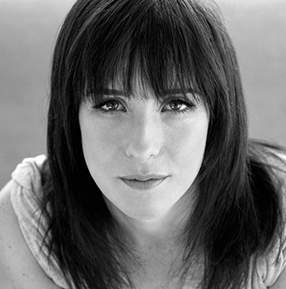Demeter in Paris
You can only miss someone when they are present to you.
The Isle of the Dead is both dark and light.
Henry Miller told Anaïs Nin that the only real death is being dead while alive.
The absent will only be absent when they are forgotten.
Until then, absence is a lie, an oxymoron.
Therefore it is entirely unclear what absence means, or consists of.
Sometimes I want to be famous once more, and then I think about the paparazzi.
I value my solitude. But I fear I am dead while alive.
Forgetting is a kind of blessing: It would [ ].
To avoid living, worry about all you’ve forgotten.
Then worry about what you will forget.
I have lived long enough to want to do it over.
When I miss my daughter, it’s as a kind of idea. Then she comes to me unexpectedly:
in her corduroy red parka, hair sticking out,
smiling at the geese, eating her shoelaces,
pointing, crying, More!
When I saw the movie, in the dark center of winter, I thought:
The son wasn’t trying to say goodbye to his dying father. He was trying to say forever.
Alone so much, I think about the people whose stories I learn in books.
Often I think of the grandmother of one of Picasso’s lovers. Her granddaughter
did not understand why she went so often to the graves of her children and husband.
Just wait, her grandmother said. You will see.
No, what she said is there comes a time when, past your moment,
you live for external things: the sky, a piece of grass, a smell.
A painting, I would say. A painting where the colors are everything.
Copyright © 2013 by Meghan O'Rourke. Used with permission of the author. This poem appeared in Poem-A-Day on July 30, 2013. Browse the Poem-A-Day archive.
"'Demeter in Paris' began, as many poems do, while I was avoiding writing something else. (In this case, it was an essay on the idea of '40' for my British publisher.) Some of the lines started as a meditation on being in the middle of one's life, but then something else took over. I began to think about an archetypal mother, who is at the mythical heart of our seasons, our ideas about how time passes, who also spends a lot of time alone. What does that solitude do to her sense of self? I wanted us to see her as more than a mother, or other than one. And lately I have been interested in poems that reflect a mind thinking and experiencing the world through representation, as this one does."
—Meghan O'Rourke

